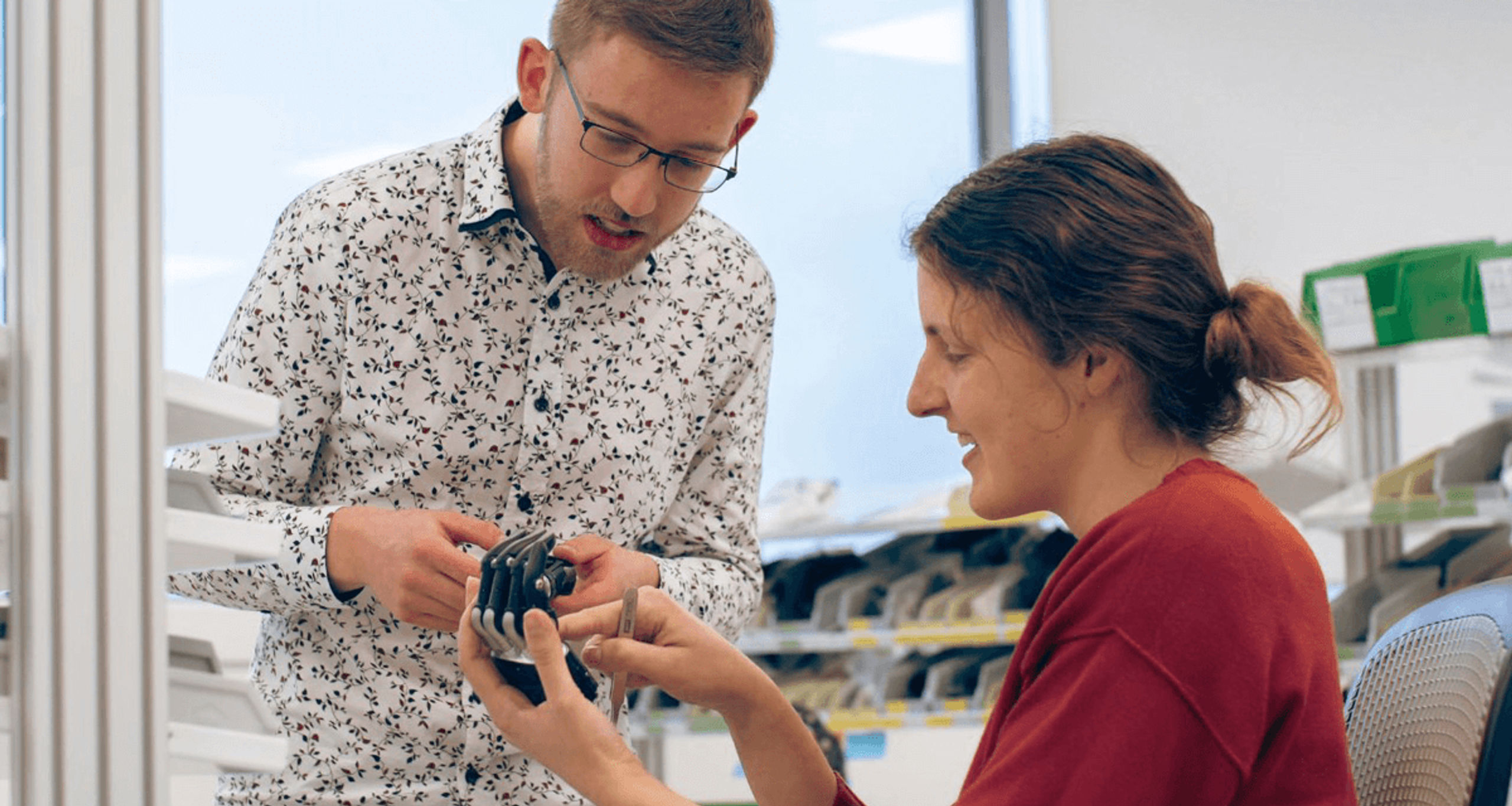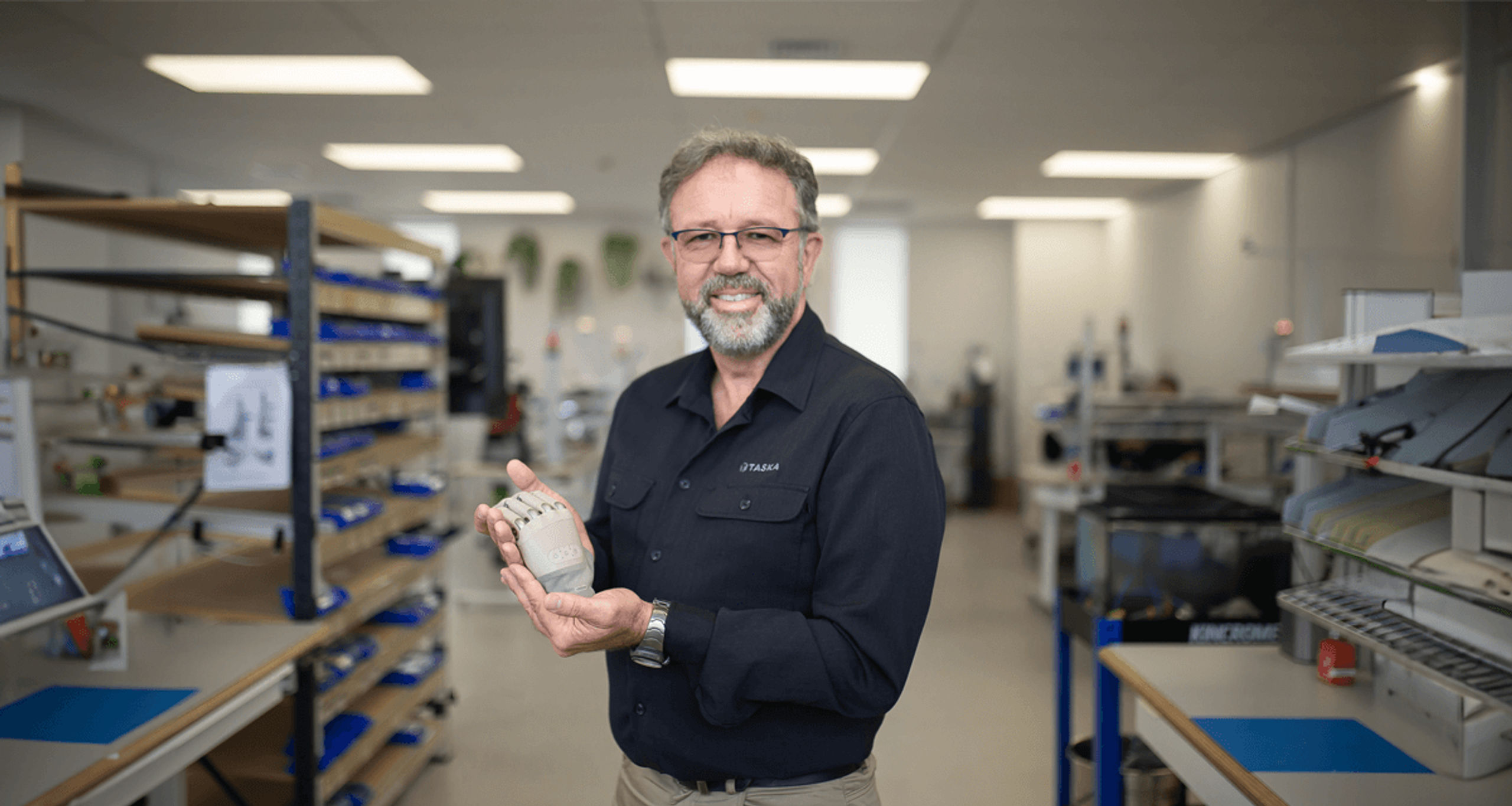
“As bionic hands continue to evolve, our quest lies in restoring a sense of touch and empowering movement at a level as yet unchartered in prosthetic development.”
Ben Travers, CEO
Research
Since 2010, our founder and team of engineers, developers, and specialists are constantly looking at the latest updates in upper-limb prosthetics around the world and empowering industry research in order to achieve the three tenants of our mission:
1 - Build a reliable, durable, and robust product that is aesthetically pleasing.
2 - Make it waterproof to empower users to carry out everyday activities.
3 - Offer an easy, intuitive user experience that instils a sense of confidence.
That’s why we have partnered with universities and technology professionals around the world to contribute with advanced research on upper limb prosthetic devices and industry innovation.

“Using TASKA's new research hand, our partners can now field trial new technology such as sense-of-touch feedback to the user.”
Mat Jury, founder & Product Director
The future of prosthetic hands
Myoelectric hands like the TASKA Hand are controlled by the electrical signals generated by the muscles in the residual limb of an individual with upper limb difference. These electrical signals are detected by sensors placed on the skin surface and processed by a microprocessor in the prosthetic hand and translated into specific movements of the fingers and thumb.
Being able to stimulate sensor neurons and selectively articulate digits in a robust way will be a significant step in upper limb prosthesis technology and may one day be considered a normal part of the rehabilitation process.
TASKA has been working with leading international universities, facilitating field trials of innovative technology, and developing partnerships to further research into this area.
Research groups TASKA is involved with


University of Arkansas
Utilising advanced myoelectric sensors combined with implanted devices that stimulate sensor nerves on the residual limb of the patient, the Institute for Integrative and Innovative Research at the University of Arkansas have developed a complete working system on a Neural-Enabled Prosthetic Hand. They have used a TASKA HandGen2 and TASKA will supply more hands for further field trials in 2024-25.


For more information and research partnerships, get in touch with us on support@taskaprosthetics.com
To learn more about industry innovations and the research projects TASKA is involved in, keep an eye on our News page and social media channels, or subscribe to our mailing list below to receive our updates.

Stay in touch.
Join our mailing list to be the first to find out about product updates, handy tips and more.
SubscribeYou can unsubscribe from our newsletter at any time. We do not sell or distribute your email address to any third party. Please view our Privacy Policy.